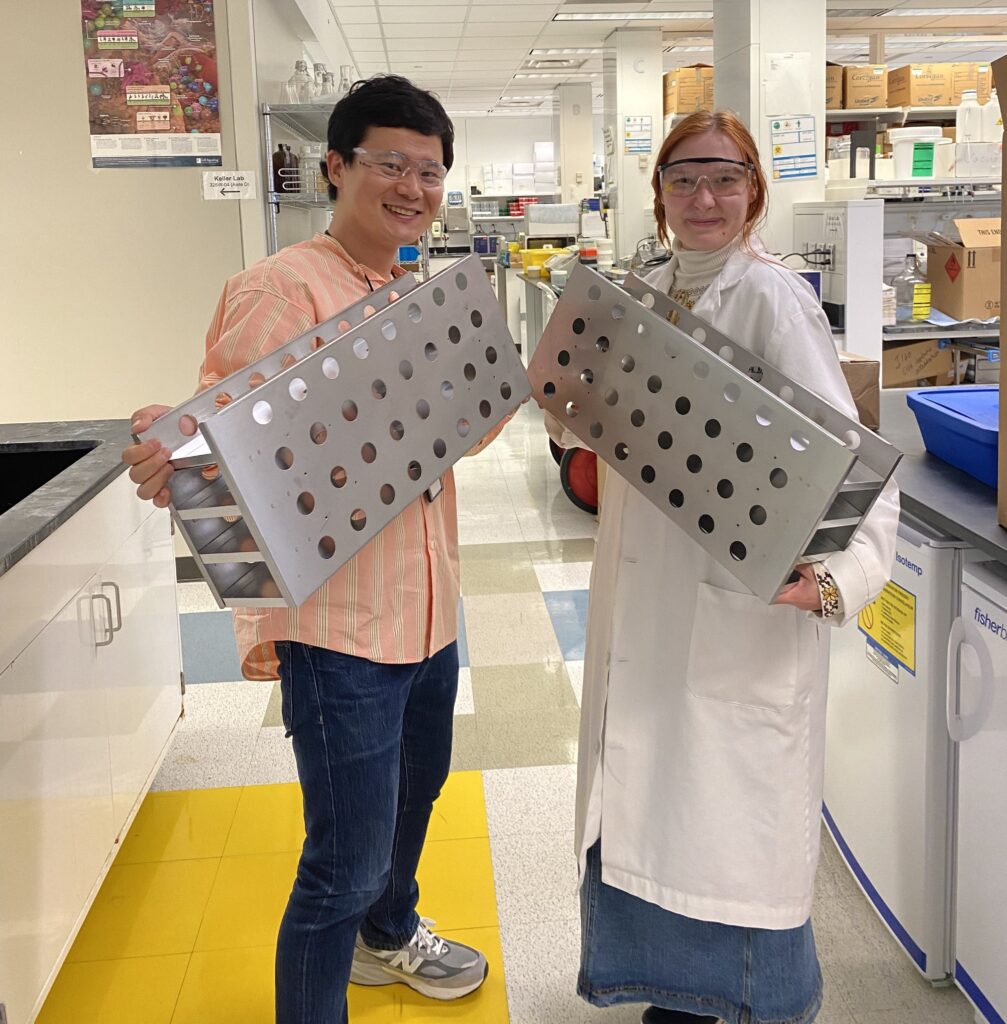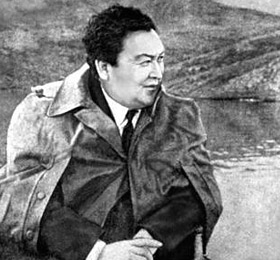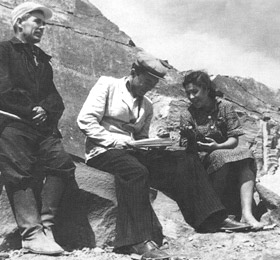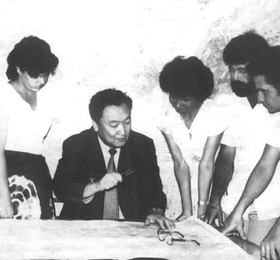Darina Mukhamedzhanova
Speciality: Biological Sciences. Internship: University of Michigan, USA.
 In 2020, 18-year-old Darina Mukhamedzhanova left Semey to go to university in Astana. In her second year of Nazarbayev University, she applied for and won the tough Yessenov Foundation competition. And so the young Kazakhstani was able to complete a research internship at the University of Michigan laboratory where she conducted research in genetic engineering and brain cancer. We asked Darina what she plans to do next having such an impressive background.
In 2020, 18-year-old Darina Mukhamedzhanova left Semey to go to university in Astana. In her second year of Nazarbayev University, she applied for and won the tough Yessenov Foundation competition. And so the young Kazakhstani was able to complete a research internship at the University of Michigan laboratory where she conducted research in genetic engineering and brain cancer. We asked Darina what she plans to do next having such an impressive background.
Why did you choose this particular American university for your internship?
I first learned about the University of Michigan about seven years ago. When I was in ninth grade I was fascinated by Ksenia Niglas‘s video blogs on YouTube. She is a teacher in Estonia, a Michigan Master’s student, a Cambridge PhD student, a blogger and a science popularizer, and a data specialist as well. At the time, I thought I would never be in her shoes – I mean the University of Michigan…
How did you do in the Yessenov Foundation grant competition?
The competition format was unusual and certainly memorable from the very beginning when we submitted applications. I was excited to tell about my work and love of science in a free form essay, without any restrictions on a word count and structure. I was surprised to find that the Foundation was so flexible in approach and interested in the candidates. I even wrote to the Foundation, “Can I really write how I want to, what I want to, and as much as I want?” – “Yes, that’s right,” they answered me. And my inner writer rejoiced! Then there were interviews – the dialogues with the interviewers went naturally and smoothly. It looked like both sides were sincerely interested in each other’s success. It touched me.
What is needed to win the competition?
To be yourself. I assure you that this is not a cliché, it is true. Every stage of the competition, from the essay submission to the interview, is arranged in such a way that each candidate can tell his/her own unique story. Keep it real: tell about your pathway to science, what motivates you, why do you do research, what are your dreams, and what goals you would like to achieve. That’s it.
Tell us about your internship experience.
On August 1, 2023, I joined Dr. Toshiro Hara‘s group in the Department of Neurosurgery at the University of Michigan Medical School. I investigated the use of a universal genetic approach to study tumor-immune interactions in glioblastoma. My internship lasted for six months: three months were covered by the Yessenov Foundation grant that I won, the rest I paid for myself. I developed a reliable methodology for genetic modification of cells. The goal was to understand the complex interactions between cells in the tumor environment. Our group used an integrated approach in solving issues related to ineffectiveness of the current cancer treatments, malignancy of cancerous cells, genetic factors, etc. I personally studied glioblastoma stem cells and intercellular interaction.
Darina, what have you achieved, and what have you learned?
My six-month internship at Hara Lab was highly productive. We worked in the Department of Neurosurgery, so we had an access to cell samples collected from real patients. Using sophisticated analyses (for instance, single-cell RNA-sequencing), we recreated trends observed in patient samples, in mice, and also conducted experiments outside of a living organism (in vitro). At one of the seminars it was pointed out that “cancer cells never invent something new, they always learn from the experience of the cells they encounter.” Dr. Hara personally taught me skills such as working with 3D cultures and organoids, molecular cloning and sequencing, genetic engineering techniques, as well as genome editing using CRISPR/Cas9 technology. The results of my research were presented at two conferences: PIBS Poster Night 2023 and Biointerfaces Institute Research Day 2023.
And what social and cultural activities were you engaged in during an internship?
I managed to make good friends and acquaintances, and we stay in touch. In Michigan, my lifelong love of rock climbing has turned into reality. In the Planet Rock climbing gym I met good friends and colleagues, tried ice climbing and learned many techniques including belaying. An unforgettable experience! I also managed to travel to New York, Boston and took several trips around Michigan. The Great Lakes are magnificent. I also watched American football and cheered for our beloved Michigan team together with my friends.
What’s new in your scientific career over the past year? What are your plans for the future?
Following my internship funded by the Yesenov Foundation, I prepared a research proposal based on my project. It was approved by the University of Michigan Undergraduate Research Opportunities Program. So I became a participant in the mentoring program in the winter of 2024. There I taught selected students basic lab skills, shared my experience and introduced the history of the project. “Be the reason someone feels welcomed, seen, heard, valued, loved, and supported.” Now that’s the main principle for my work. In the summer, I received an invitation from Dr. Makoto Hayashi from Kyoto University and completed an internship at his laboratory, where I studied the activation of immune system in response to extrachromosomal circular DNA. The internship in Japan expanded my knowledge and skills. I also learned about work arrangements in Japanese laboratories. Currently, I continue my studies at Nazarbayev University working on my diploma thesis which I will defend next autumn. There is a lot of work ahead, a lot of science, now in Kazakhstan.
What will you advise those who have yet to experience this?
Determine your goals and priorities. Don’t chase for conventional prestige of a university or a cool study by a famous professor. Remember: they did choose you but you chose them as well. First of all, decide for yourself what kind of mentor you would like to work with and look for him/her. For example, my experience at Dr. Hara’s lab was both enjoyable and productive in no small part because of him, his consideration and patience. It’s scary because it’s unfamiliar, not because you’re incapable. Whether it’s during the application process or looking for a host lab, the uncertainty can seem daunting, but never doubt yourself—your skills, your talents, and your dreams. You can achieve anything. Keep believing in yourself, and the world opens itself to you. And don’t hesitate to contact the other winners of the Program and people who might be able to help you.
20.09.24, Stories
Seen by: 1,115





